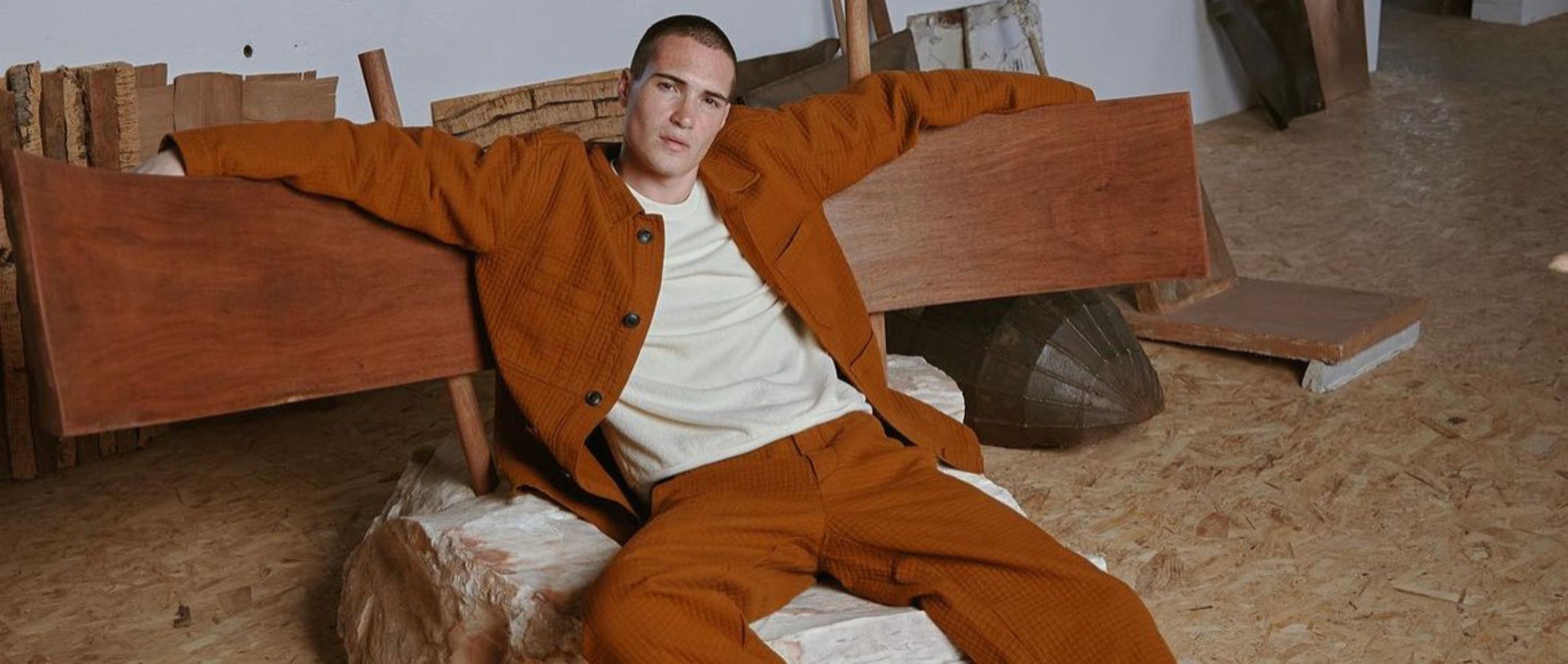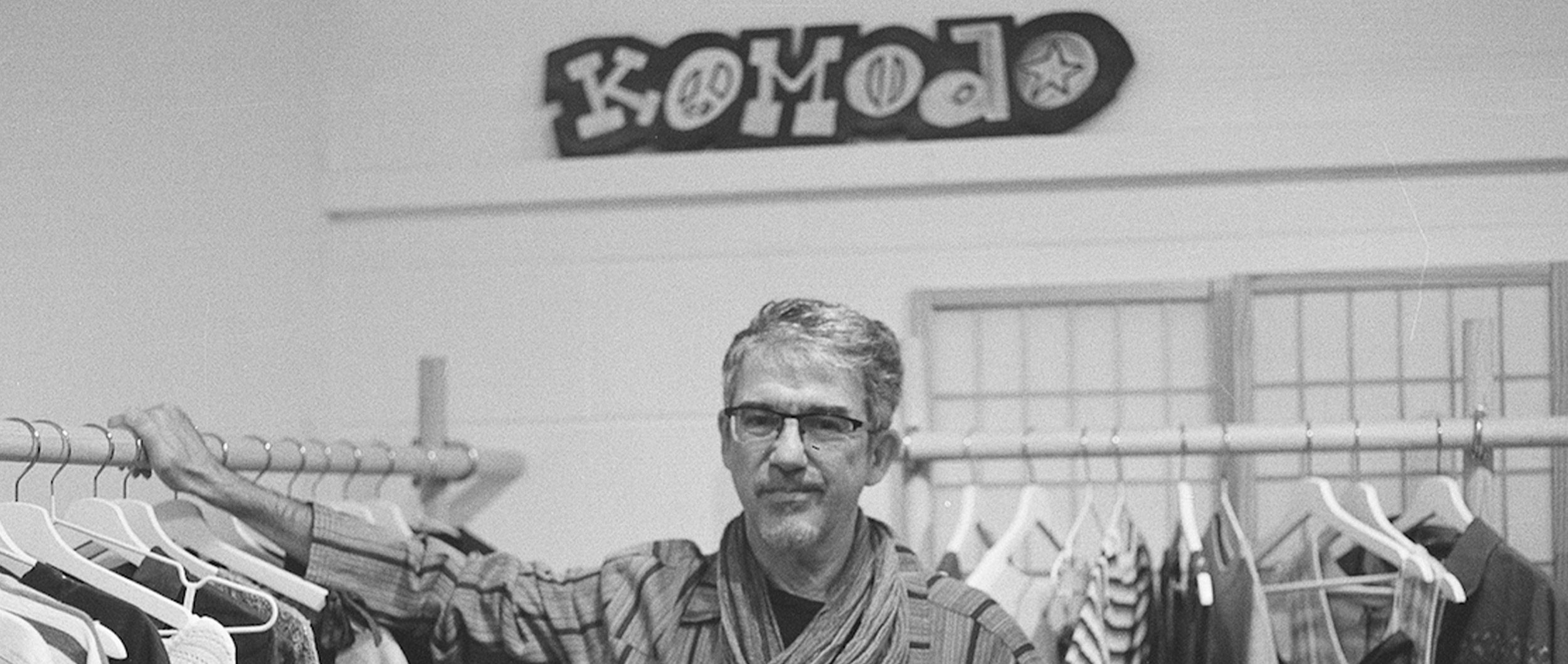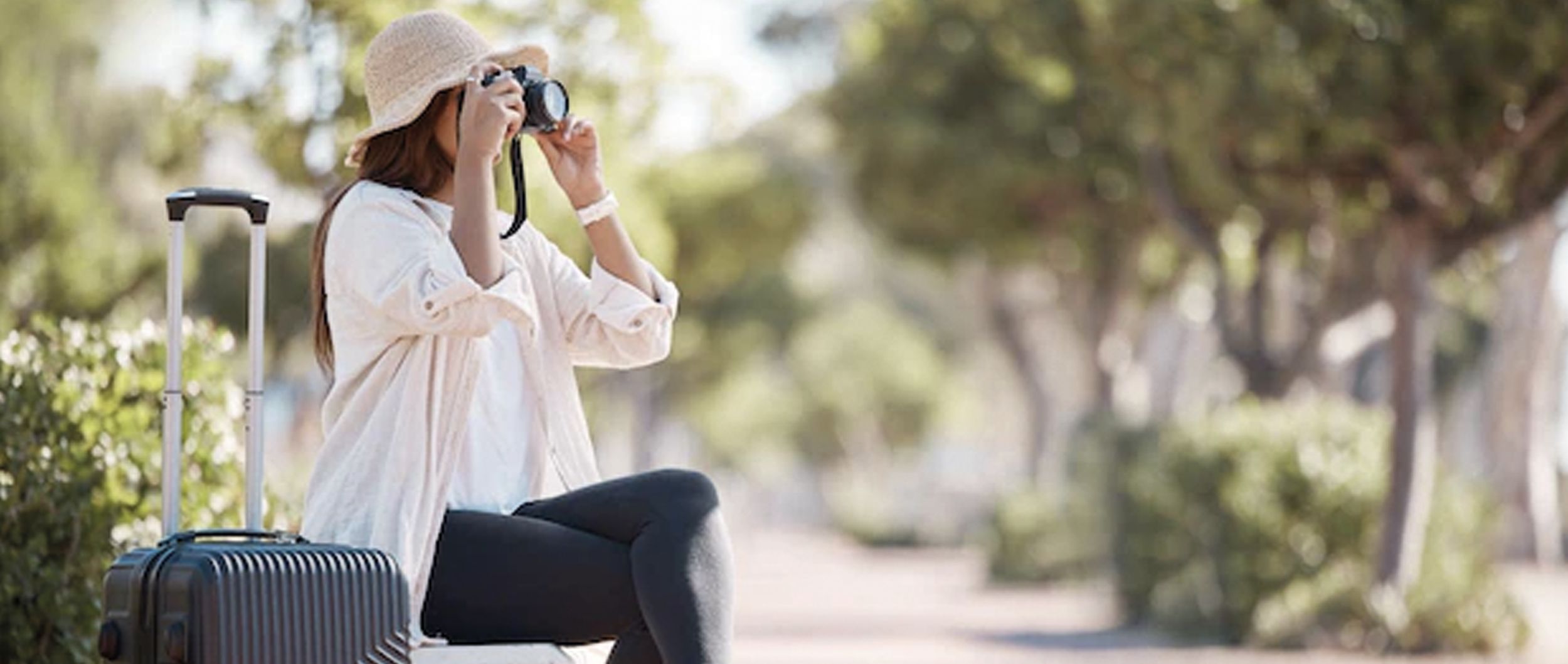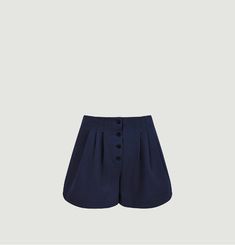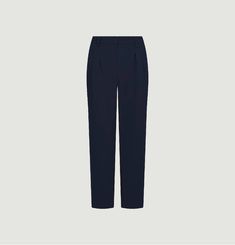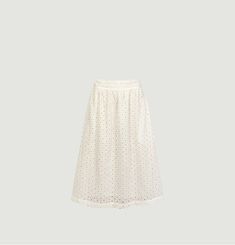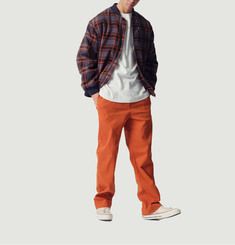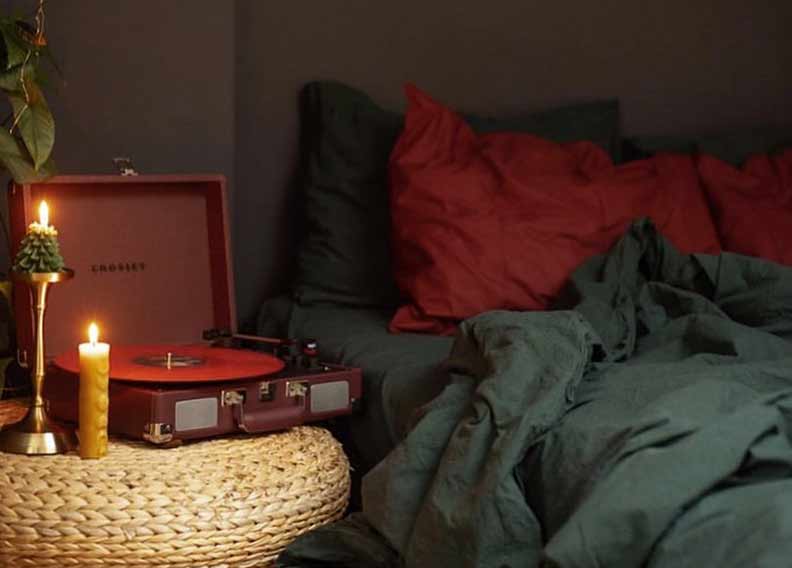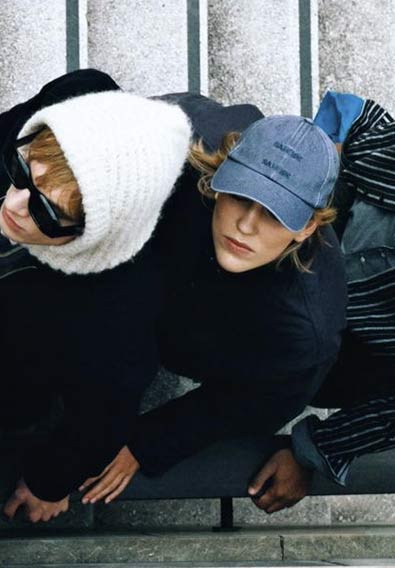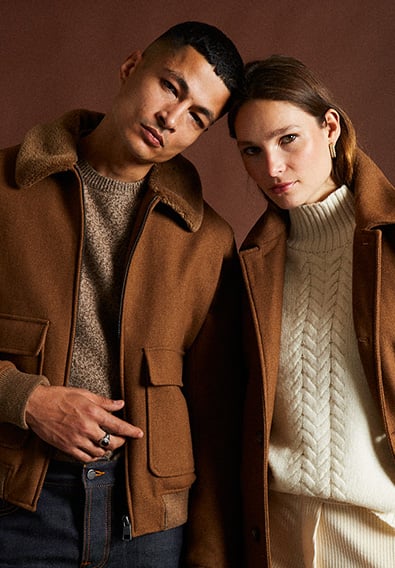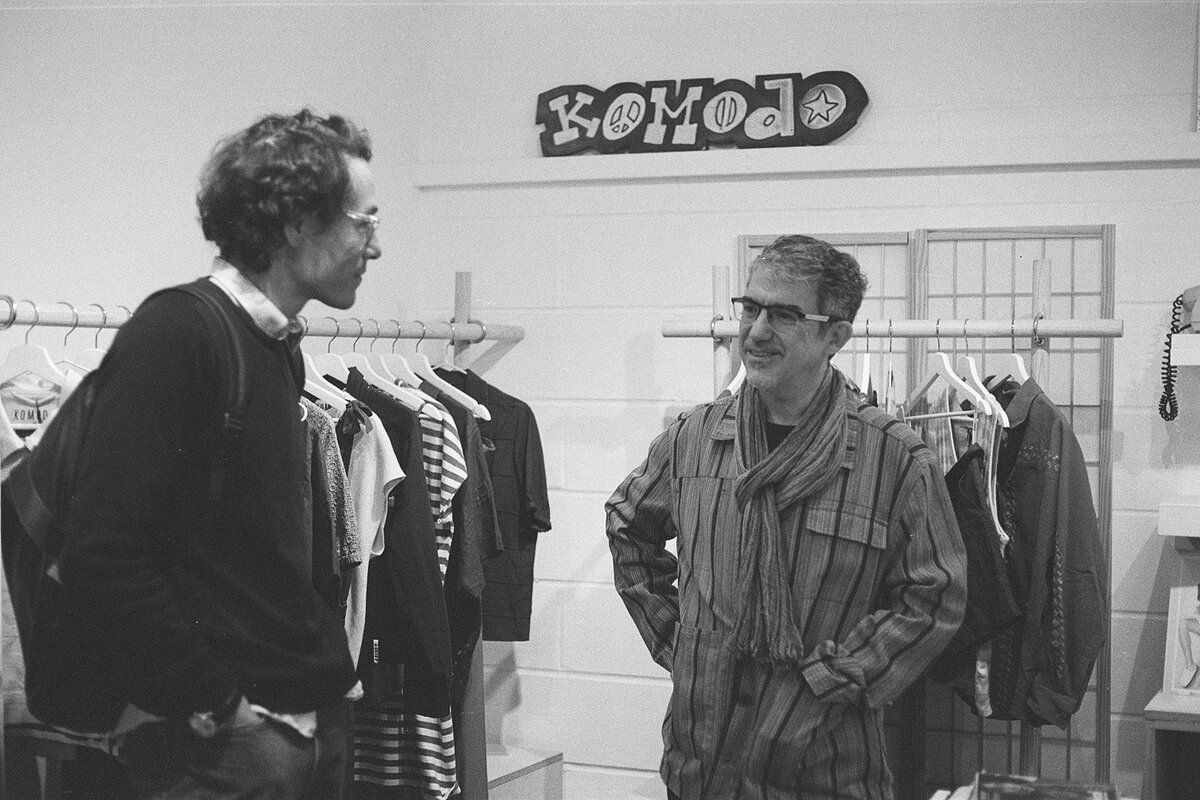
We're in your office here in London. What makes this one special, and how does it relate to the brand?
Mark: We've been here a long time, maybe close to 15 years. It's a beautiful part of London, Primrose Hill, which isn't really an industrial and commercial area, but rather a historic residential neighborhood. I inherited the space from a friend who had another brand, which fell into disuse a few years ago. I used to visit her and go for lunch in the village, then she told me she couldn't stay. I jumped at the chance.
It was a great deal with the local council, we're in Camden, the de market is just down the road, so it's council owned, which meant we were somewhat protected from rising rents and commercial landlords.
It's small, but it's big enough for us. All our online orders are shipped from here. We're so proud of the location that we've set up our marketing strategy with reference to Primrose Hill, a sunny, leafy neighborhood.
It's a perfect size for us and I think it's the case for all sustainable businesses. Speaking of which, unfortunately, this week in the UK we've seen two great sustainable world brands, "People Tree" and "Thought", both of which have gone into administration...
Physically, we need space to design our work, for the goods, of course, and for the showroom, which we don't use enough, because not as many buyers as we'd like come to visit us here. Sometimes they go to fairs, sometimes they don't; they work mainly by looking at our catalogs.
Because you've got a great catalog!
Mark: Yes, (laughs) our catalog is good, because we've always put a lot of effort into getting it right and we attach a lot of importance to it. When I see brands bigger than us not doing it, I think it's a shame, it's not that hard to do, it doesn't cost that much. You have to learn, but once you've learned how to do it, all you have to do is keep going.
So, what makes the Komodo brand so special?
Mark: I'd say it's the fact that we use this slogan, you know, "the original ethical brand since 1988". When I created the Komodo brand, I changed the name in 1988, even though I was already in business two years before that. The story of Komodo, or my involvement in the company, stems from the fact that I was a backpacker. I left school at 18, I had no idea what I was going to do, I didn't have the grades to go to university, and I didn't really want to go, I didn't really know what I wanted to do either. I ended up by chance visiting friends abroad, and then finding a job in Hong Kong, in the garment industry. So I kept traveling and met people who told me to come to Australia, or other countries, to come and see this and come and do that. I ended up traveling for two and a half years! (laughs)
I started buying things on trips, you come across so many amazing markets when you go abroad. I think I probably made my first purchase in China, in 1983. China in 1983 wasn't the same as it is today, having just emerged from the Cultural Revolution and all those Maoist artifacts and objects. There wasn't much else to buy, but there were all these interesting things you could find in a store in Beijing.
And I did, at least I started, I just saw that there was talk of buying things to collect. In the back of my mind, I thought "oh maybe one day, when I get home, I'll maybe have a stall at Camden market and sell them". I bought things here and there, and when I got to the point where I had too much stuff and had to fly or leave the country, I bought a big trunk and put it all in. I sent it back to my parents and when I got home, there was a big trunk they'd put in the garage.
It was just junk, things I'd bought in Nepal, Burma, India, China, Indonesia and Thailand. And I said to myself: that's it, okay, come on, I'm going to do it, I'm going to have a stall at Camden market. I'd never done that before, so I wondered what I could do instead. I went round and round and nothing came to me so I became a market vendor and that's how I started. I have a lot of respect for the shopkeepers, it's hard work but it's good work. The special thing was that I had a story for each piece that I made my audience listen to. It worked really well and then, a little later, I had the opportunity to go back to Asia and do something else. I was really looking for a way to go back to Asia, but not in the way I'd experienced when I traveled. I wanted to be a trader, not a traveler. It's a different relationship you have with the local population when you're doing business within companies, it's a kind of nivelator. Whoever you are, whatever your level in society, when we're there to do business, we're all equals, I want this and you want that, we negotiate and we have to work together to make it work. So it was a good experience, more interesting, I think, after traveling a lot. I've really grown from that and the influence I've had, I guess. Before, when I was traveling, I was a very young teenager, all the other people I met were much older than me. A lot of them were preppy, in India in particular, people had already been there for 10, 15 or 20 years. Other people had obviously finished university, gone to work, earned money and saved it. So they were about ten years older than me and had a big influence on me, and to this day I really like these people and their ideas. And you know, when you travel cheap to places like India, you see the world from a very different point of view, you're proud that you can do everything on $2 a day, so that was the influence behind Komodo. I think when I started doing "business", I wanted to do it with cool little factories, using local materials and craftsmanship, and make interesting things that people would like to do too.
All the terminology we use today for sustainable fashion and eco-fashion, none of these words were used back then.
The pieces we created, people would call ethnic or hippie, they weren't that complimentary. It wasn't until a few years later that I realized, ecological fashion, green fashion, sustainable fashion, I'd been doing that for years already so why not call it that, why not start using those words? So we kind of refreshed our dictionary.
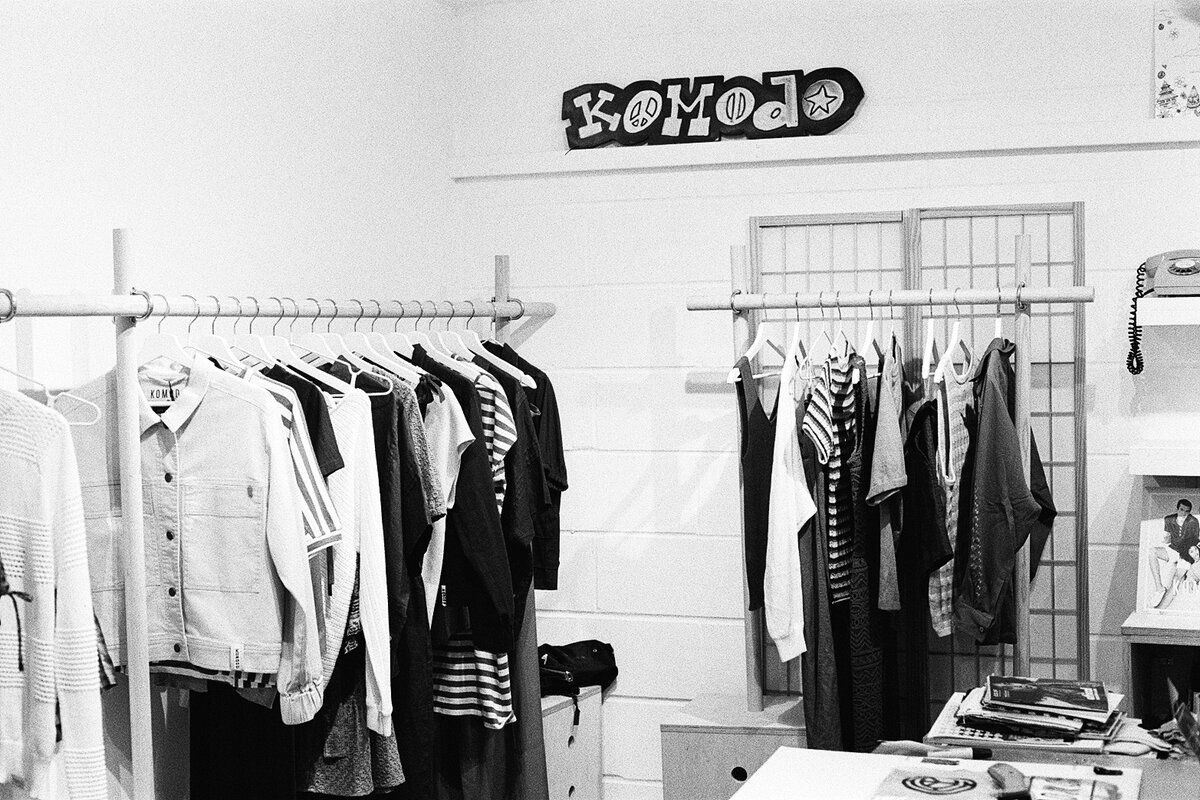
We'd say your brand isn't really hippie, it's a kind of mix between a contemporary brand and an ethnic vibe, isn't it?
Mark: Right, we learned later that we had to make something that people wanted, that was commercial, that was successful, the products we were selling in the late 80s were more inspired by what people were wearing on the street but people changed. We were doing crazy things in 1988.
So it was much more in the hippie mood?
Mark: No, it wasn't hippie, it was house music, street fashion, there were lots of different tribal looks that kids and older kids loved, we were only 21/22, we were doing things we thought were fun, the world was very different, people were much more adventurous. Today, I think people are much more conservative and most young people don't take risks, they're not very alternative, there are no more independent stores for example.
In every town in England, there was a new store opened by a young person, who was in his twenties. The ones that survived that period are still there today. I think what makes Komodo so special is that I didn't come out of design school, but travelled with a bag on my back, from East to West, open to everyone. That's how the brand got off the ground and made a name for itself. It was quite an adventure, it's not the experience of a normal fashion brand that makes it different.
Sustainability is at the heart of the brand, how do you integrate it into your collections?
Mark: I guess it's mainly through the choice of fabrics, we're always looking for sustainable fabrics. If it's not possible to make a garment in an interesting sustainable fabric, we choose not to. So yes, the sustainability of our fabrics is really the main thing. By the way, we want to know and visit all the mills we work with.
Oh, so you know all the mills, you've visited them all?
Mark: That's right, we put a lot of emphasis on that.
Always concerning fabrics, are the prints and designs all done in-house, or do you sometimes buy the fabric?
Mark: We use freelance graphic designers, but we also do a lot in-house, tinkering with our own prints.
Sometimes in Paris, you find the same fabrics in different collections. But that's because it's much more complicated to create your own design, to have it printed...
Mark: It's not that difficult, all you need is to work with factories that understand that you only need small quantities. There's no point in going to a big factory that wants to sell you 500 pieces of a style or color and asking them for only a hundred pieces. One has to be a good match for the other, so yes, it's not an easy business, you can never do as well as you'd like. You can never predict, if you could really read and predict, it would be an easy business, but you're always fighting to get what you want.
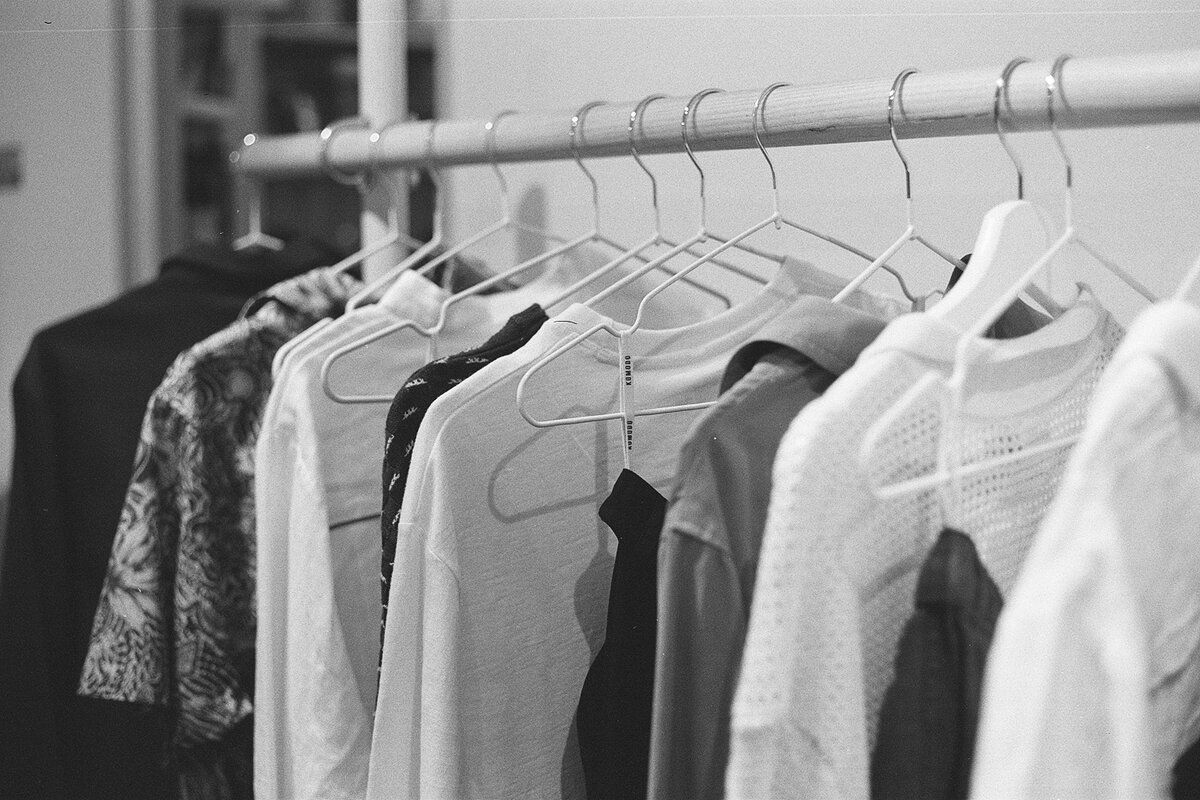
How do you imagine the future of Komodo?
Mark: I don't know, we want to be more successful, we want to grow, we're always looking for new ways and new opportunities and we're starting to do well in America. Whereas we'd kind of abandoned it, now we've got a new agent and it's going pretty well. We're trying to expand the company wherever it can go.
We want to increase our online presence, we have more and more dropshipping partners. We want to be seen, we want to profile ourselves online, but it's not easy. We're trying, we're running ads on Pinterest, but nothing's really making a difference at the moment.
Discover our Komodo selection at l'Exception
The photos were taken with Potsdam Kino B&W 35 mm ISO 100 films of Lomography
